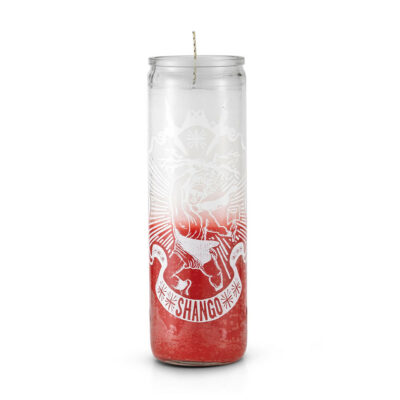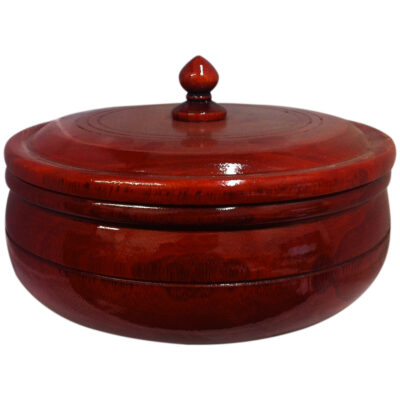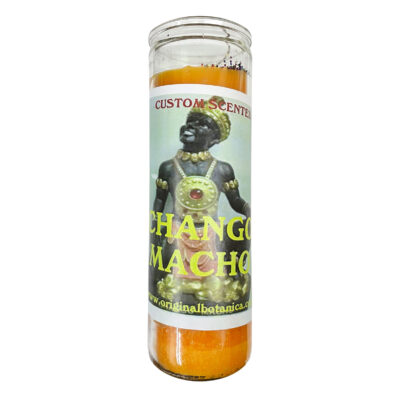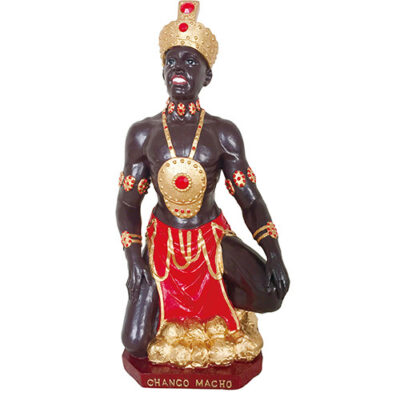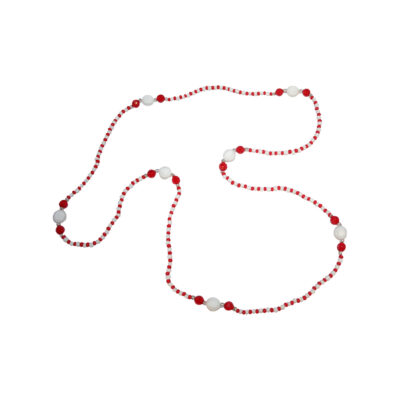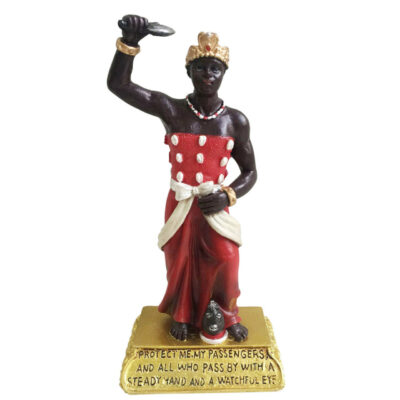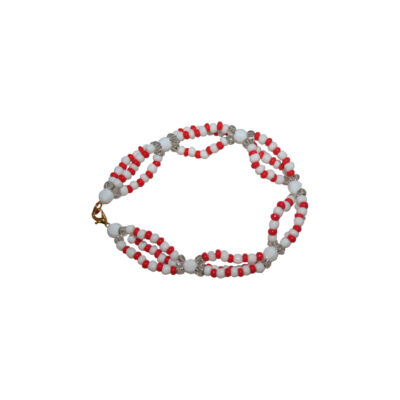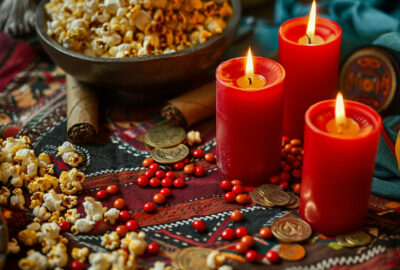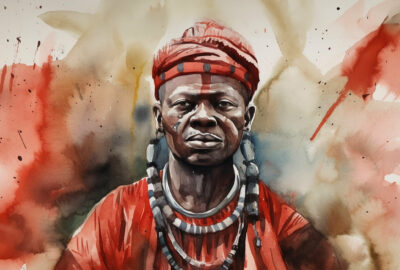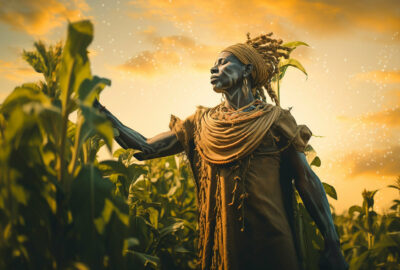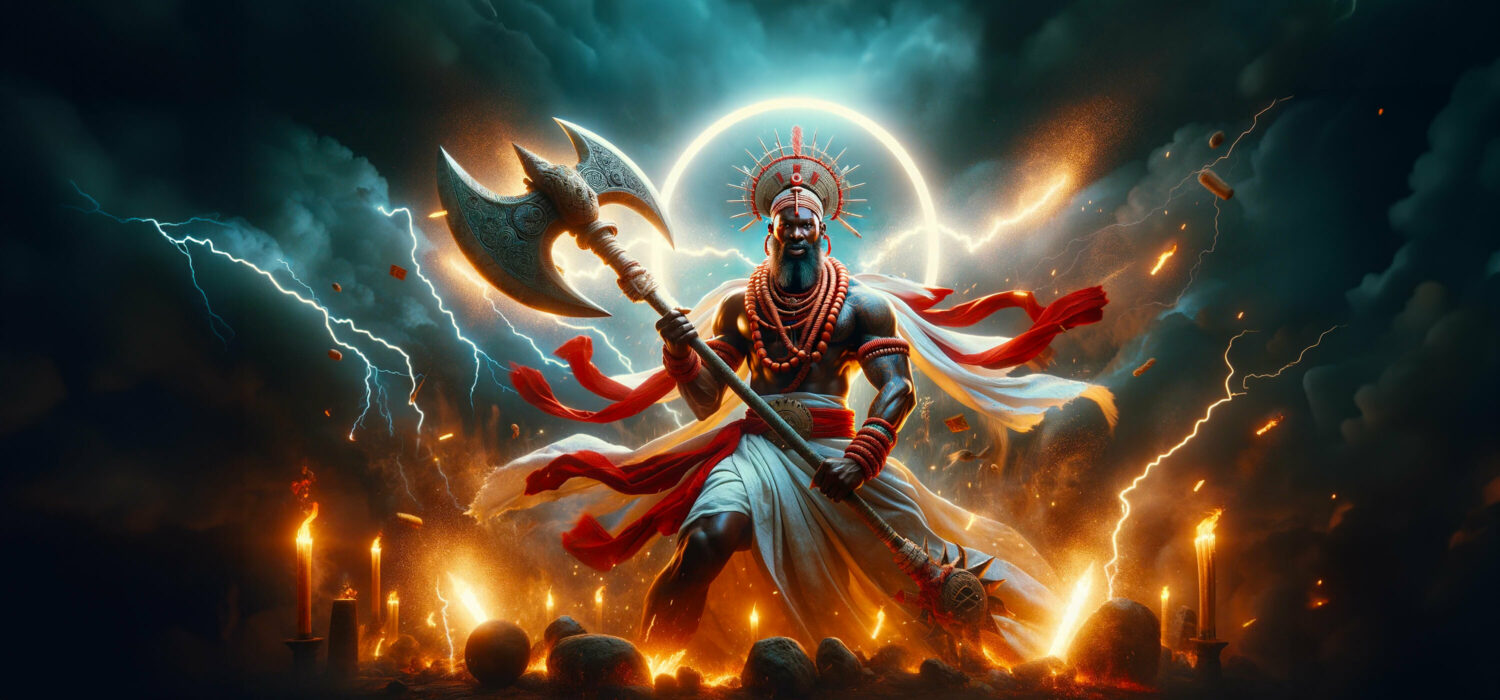
Shango: Orisha of Justice and Protection
Shango, also called Chango, Sango, or Xango, is a powerful African god who is revered as an Orisha after his death. Originally from the Yoruba people of Nigeria and Benin, his history has spread across continents and centuries.
This "King of Santeria" is one of the most beloved and respected of all Orishas as well as a skilled sorcerer who casts powerful spells. He teaches us to live a balanced life, one that includes both fun and authority.
As the fourth king of the Yoruba Oyo Empire, Shango is known as the god of thunder, drumming, dancing, fire, and male strength, and is famous for his love of partying. He even has a special dance named after him. Shango is an expert at playing the drums, and the sound of thunder reminds us of his rhythmic beats.
Along with Oshun, Yemaya, and Obatala, he is one of the four pillars of Santeria. Shango was married to different Orisha goddesses, including Oya, Oshun, and Obba, and he is a passionate warrior who also values love.
The Image of Shango
The fiery Shango is always seen with a double-headed axe, representing justice and symbolizing thunder. He is typically depicted wearing vibrant red and white robes, a regal crown, and with flames that seem to dance around him.
Some believe that he lives in a batea, a shallow, covered wooden bowl that is typically placed on a pilon, or pedestal by his worshipers. Shango is usually adorned with beads of red and white, known as elekes, which represent his two favorite colors.
Then, there are his thunderstones. These double-headed stones are believed to contain potent mystical energy, which Shango is said to wield with ease and symbolize this Orisha’s control over thunder and lightning.
The Orisha of the “Divine Masculine”
In Santeria, Shango is often associated with the "divine masculine." As an Orisha of thunder and lightning, Shango represents the power and strength of male energy, which is why he is often depicted as a warrior, a leader, and a protector.
Since Shango embodies many traits associated with traditional masculinity, such as courage, bravery, and assertiveness, he is seen as a symbol of male virility and sexual energy, as well as the father figure and protector of his followers.
Men will often turn to Shango for his guidance and blessings to embody these qualities in their lives. The Orisha is seen as a mentor to young men, teaching them to be strong and confident and to take on leadership roles in their communities.
But, did you also know that Shango's energy is not limited to men only? Many women will seek his guidance and protection and can also embody the qualities of courage and assertiveness associated with Shango.
In essence, Shango represents a balance of masculine and feminine energy, embodying the idea of “yin and yang.” This Orisha is a reminder that both masculine and feminine energies are needed to maintain harmony and balance in the world.
The Connection Between Shango and Saint Barbara
Shango has an interesting connection to Saint Barbara, and in some traditions, Shango and Saint Barbara are considered one and the same.
Saint Barbara is a Christian saint who was martyred for her faith in the 3rd century. She is often depicted with a lightning bolt, which is said to represent the way in which she was executed. In some cultures, Saint Barbara is associated with thunder and lightning, which is where the connection to Shango comes in.
Shango, as we know, is associated with thunder and lightning. He is said to have control over the elements and is often depicted with a double-headed axe, which represents his power and authority.
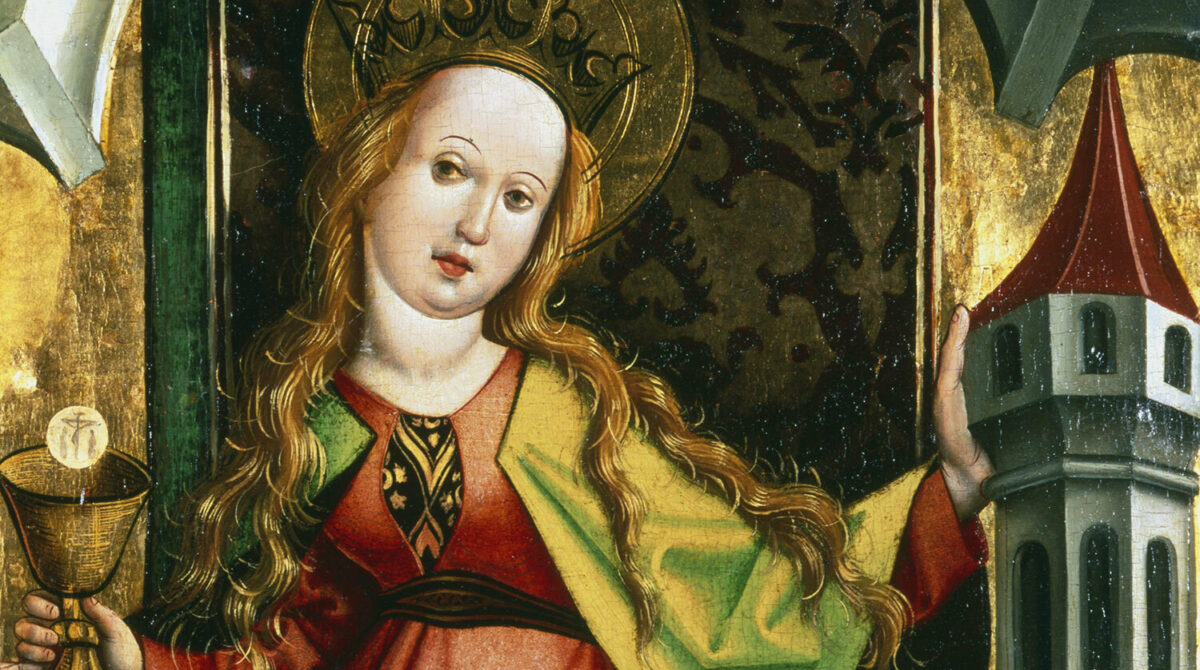
Saint Barbara is associated with thunder and lightning, which is where the connection to Shango comes in.
The connection between Shango and Saint Barbara can be traced back to the period of slavery in the Americas when Africans were forced to convert to Christianity. To maintain their own spiritual traditions, they often blended elements of their own beliefs with those of Christianity. In this way, Shango and Saint Barbara became intertwined.
Today, in some Santeria traditions, Shango is considered a manifestation of Saint Barbara. In other traditions, they are seen as separate entities but with a close connection. Regardless of how they are viewed, the connection between Shango and Saint Barbara is a testament to the way in which cultures and traditions can intersect and blend together over time.
Shango's Sacred Animals, Numbers, and Symbols
Shango has various symbols and associations that are important to understanding his power and importance. All of these elements play a vital role in Shango worship and are important symbols that serve as a conduit for communication with Shango and the other Orishas.
Shango’s Symbols In Nature
Dogs, turtles, and roosters are considered sacred animals to the Orisha Shango. Dogs are believed to represent loyalty and protection, whereas turtles symbolize long life and patience. Roosters, on the other hand, represent vigilance and the announcement of the new day.
Then there is Shango's sacred nature area, the royal palm tree. This majestic tree is considered sacred by many because it is believed to have the power to heal and provide protection. As a symbol of royalty and strength, it has become strongly associated with the Orisha Shango.
Shango’s Numbers
Shango's sacred numbers are 6 and 12. The number 6 represents harmony, balance, and justice, which are all important qualities for this Orisha. The number 12 is associated with completeness and perfection, as there are 12 months in a year and 12 zodiac signs.
Shango’s Batea and Elekes
In Shango worship, the batea and elekes are important symbols that represent the power and presence of this Orisha. The batea is a shallow, covered wooden bowl that serves as Shango's home. It is placed on a pedestal, known as a pilon, during ceremonies and rituals. The elekes are beads of red and white that are worn to represent Shango's two favorite colors. These beads are also believed to hold special energy and are often used in prayer and meditation.
The batea is considered sacred and is treated with great respect by followers of Shango. It is believed that the batea serves as a conduit between the physical and spiritual realms, allowing for communication with Shango and other Orishas. During rituals, offerings such as food and drink are placed in the batea as a way of showing reverence and gratitude to Shango.
The elekes, on the other hand, serve as a way of connecting with Shango on a personal level. They are worn around the neck or wrist as a reminder of Shango's presence and protection. It is believed that wearing the elekes can help to bring good luck, protection, and prosperity.
All of these symbols and associations are important in Shango worship because they help followers connect with this Orisha and understand his power and importance. They are used in rituals and offerings as a way of honoring and communicating with Shango.
The Followers of Shango’s Path
Those who follow Shango’s path and are often called his "children" are believed to possess many of his characteristics, including his high energy, strength, and boldness. They are known for being very sexual and enjoying being the center of attention.
Shango's children also have a strong protective instinct, especially when it comes to their own children. They can be quick to anger and may have a hot temper, but they are also very loyal and will do whatever it takes to defend their loved ones.
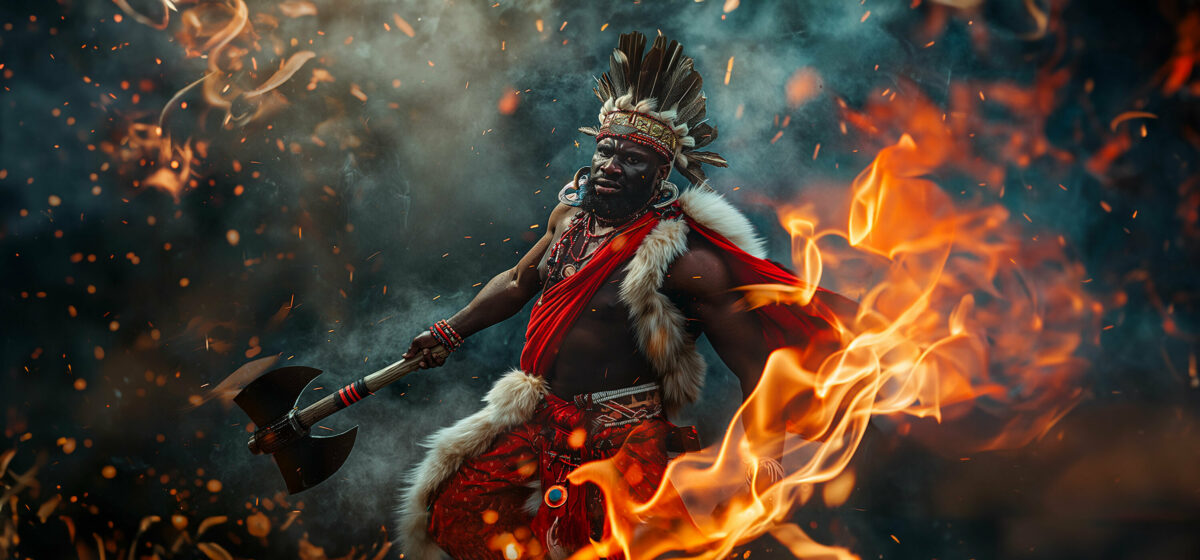
Many worshipers seek Shango's protection and guidance in matters of love, health, and prosperity.
Because of their bold nature, Shango's children often find themselves drawn to risky and dangerous jobs such as those in the military, police force, or firefighting. They enjoy taking risks and living life to the fullest, often embracing challenges with enthusiasm and determination.
Overall, Shango's children are known for their strong personalities and their ability to overcome obstacles with resilience and bravery. They are valued members of the Santeria community and are believed to have a special connection to Shango and his power.
Offerings To Shango
A lover of partying and music, there is an abundance of offerings for this Orisha. Offerings to Shango can vary depending on the individual's beliefs and practices, but some common offerings include food, drink, and candles. In Santeria, Shango is often associated with the color red, so offerings of red foods and drinks such as red apples, red wine, and pomegranates are popular. Amala, a cornmeal porridge made with okra, is one of Shango’s favorite things to eat.
Other common offerings to Shango include tobacco, rum, and cigars. Tools made from cedar can be placed on his altar when worshiping him. A bata drum is another ritualistic item that would be meaningful to Shango. These items are believed to be powerful conduits for communicating with the Orisha and can be used to help focus one's intentions and prayers.
In addition to physical offerings, some followers of Shango may also make offerings through dance, drumming, and other forms of music. These forms of expression are believed to be particularly powerful in connecting with Shango's energy and bringing about desired changes or outcomes.
Praying to Shango
People pray to Shango for various reasons. Many worshipers seek Shango's protection and guidance in matters of love, health, and prosperity. Shango is also known for his ability to bring justice and restore balance, so people may pray to him for help in resolving disputes or overcoming obstacles.
Some may also pray to Shango for spiritual enlightenment or a deeper connection with the divine. They may seek his guidance in their personal or professional lives or ask for his blessing in important life events such as weddings, births, or graduations.
When reciting the following prayers to Shango, light an Shango 7 Day Orisha Candle, Chango Macho 7 Day Scented Candle, or Abundance Candle.
A Shango Prayer for Justice and Protection
Recite this prayer and call upon this dominant Orisha when you are searching for justice and Shango’s powerful protection:
Oh Sovereign and Mysterious spirit Shango who directs the destiny of our lives, watch over me.
Humbly I pray that you light the way for me to obtain, through your secrets and great power as a warrior, fortune, and luck in my job, business, and gambling so that I can take care of my needs and gain a joyful soul and peace of mind.
I kneel before your image, I admire your power, strength, and knowledge, and I ask for your benevolence. In the name of God and the Holy Spirit, protect me from all evil influences and evil thoughts and intentions of my enemies.
There will be no need to retreat because you will be with me and you will help me in all of my needs. Shango, my guide and protector, grant me (say here what you need help with).
In the name of the Father, Son, and The Holy Spirit. Amen.
A Shango Prayer for Love
Recite this prayer and call upon the potent sexual energy of the Orisha Shango when you are looking for love or trying to add fiery passion into your life:
O mighty Shango, God of thunder and fire,
I come to you today with my heart's desire.
I pray for your blessings of love and passion,
To ignite a flame that will never ration.
Grant me the courage to be bold and strong,
To pursue my heart's longing all day long.
May my love be reciprocated and true,
And my heart be filled with joy anew.
O Shango, I call upon your power and might,
To bring me love that will shine bright.
May your blessings of passion and desire,
Set my soul ablaze like a raging fire.
I thank you, Shango, for hearing my prayer,
And for granting me love beyond compare.
With your guidance, I know I will succeed,
And find the love I truly need.
Within both Santeria and the Yoruba religion, Shango is a powerful Orisha who embodies both masculine and feminine energy. His symbols and associations, including sacred animals, numbers, and the batea and elekes, are important for understanding his power and significance. Through the worship of this passionate Orisha, followers will always seek his guidance and protection in their lives.
